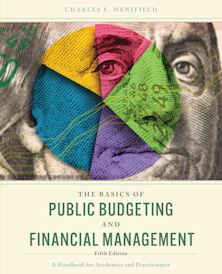- Home
- ACADEMIC
- Politics & International Relations
- Public Management, Administration and Policy
- Wildlife in the Marketplace
Wildlife in the Marketplace
Terry L. Anderson (Author) , Peter J. Hill (Author) , Ryan C. Amacher (Contributor) , Ann M. Carlos (Contributor) , Robert K. Davis (Contributor) , James L. Huffman (Contributor) , Urs P. Kreuter (Contributor) , Frank D. Lewis (Contributor) , Dean Lueck (Contributor) , Roger A. Sedjo (Contributor) , Randy T. Simmons (Contributor) , R David Simpson (Contributor) , Robert D. Tollison (Contributor) , John T. Wenders (Contributor) , Thomas D. Willet (Contributor) , Thomas J. Wolfe (Contributor)
Wildlife in the Marketplace
Terry L. Anderson (Author) , Peter J. Hill (Author) , Ryan C. Amacher (Contributor) , Ann M. Carlos (Contributor) , Robert K. Davis (Contributor) , James L. Huffman (Contributor) , Urs P. Kreuter (Contributor) , Frank D. Lewis (Contributor) , Dean Lueck (Contributor) , Roger A. Sedjo (Contributor) , Randy T. Simmons (Contributor) , R David Simpson (Contributor) , Robert D. Tollison (Contributor) , John T. Wenders (Contributor) , Thomas D. Willet (Contributor) , Thomas J. Wolfe (Contributor)
You must sign in to add this item to your wishlist. Please sign in or create an account
Description
This collection of new and classic essays by a group of distinguished economists and wildlife experts challenges the prevailing idea that wildlife and markets are inimical to one another, arguing that markets can play an important role in preserving animal species and their habitat. In fact, the editors argue, the late nineteenth-century slaughter of wild game occurred because common ownership gave no incentive for hunters to limit their take or for owners of habitat to invest in wildlife. Using case studies from North America and southern Africa, the essays discuss how 'enviro-capitalism' has been successfully implemented to encourage elephant and rhino preservation and look at the politics of the international ivory ban. They examine the historical role of incentive wildlife management and the problems with political wildlife management that do not take into account the ownership of habitat.
Table of Contents
Chapter 2 The Economic Organization of Wildlife Institutions
Chapter 3 In the Interests of Wildlife: Overcoming the Tradition of Public Rights
Chapter 4 The Economics of Fatal Mechanism for Preserving Endangered Predators
Chapter 5 Strategic Pricing in the Fur Trade: The Hudson's Bay Company/ 1700-1763
Chapter 6 The Economics of Elk Management
Chapter 7 A New Paradigm in Wildlife Conservation: Using Markets to Produce Big Game Hunting
Chapter 8 The Capitalist Tool: Wildlife Management in Colorado's Sangre de Cristo Mountains
Chapter 9 Who Owns the Elephants? The Political Economy of Saving the African Elephant
Chapter 10 Property Rights Contracting and the Commercialization of Biodiversity
Product details
| Published | 19 Apr 1995 |
|---|---|
| Format | Ebook (Epub & Mobi) |
| Edition | 1st |
| Extent | 208 |
| ISBN | 9781461647171 |
| Imprint | Rowman & Littlefield Publishers |
| Series | The Political Economy Forum |
| Publisher | Bloomsbury Publishing |
About the contributors
Reviews
-
Extremely relevant to current policy debates in Congress.
Jonathan H. Adler, Competitive Enterprise Institute
-
. . . is a scientific, highly readable, and thoughtful assessment of wildlife management policies in the National Park System.
Forum For Applied Research and Public Policy
-
Compelling case studies that prove why property rights and markets promote successful wildlife conservation policies . . .
Tom Bourland, ACF, CWB, Forestry and Wildlife Consultant
-
Wildlife in the Marketplace offers valuable suggestions on how commercialization and private ownership can supplement current species-protection efforts. The book captures the essence of a major trend in wildlife conservation. Anderson and Hill present the data and thoughts from people shaping the future marketplace for wildlife conservation.
Hal Salwasser, University of Montana
-
In the management of any resource, we must not ignore the strengths and weaknesses of markets and property rights as motivators of appropriate behavior. This volume provides some good scholarship on this topic.
Charles W. Howe, Director, Environment & Behavior Program/IBS, University of Colorado at Boulder
-
This book should stimulate professional and academic wildlife and conservation biologists to explore ways to transform wildlife on privately held lands from liability to asset . . . Wildlife conservationists should read this book.
Choice Reviews



































